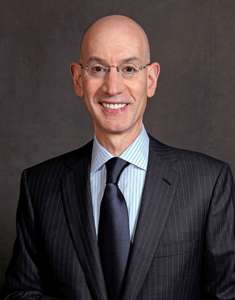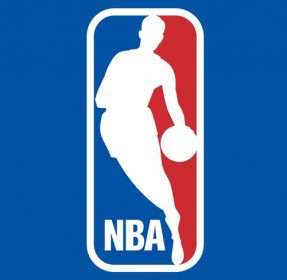NBA Commissioner In Favor of Sports Betting
I have something to tell you, but before I do, I think you should be sitting down. When you have found a seat, feel free to continue reading.
The National Basketball Association (NBA), an honest-to-goodness professional sports league, may be open to the expansion of sports betting. [spit take]
According to Bloomberg.com, the NBA’s first year commissioner Adam Silver has said he understands the appeal of sports betting and that it is “inevitable.” Speaking at the Bloomberg Sports Business Summit on Thursday, Silver said, “It’s inevitable that, if all these states are broke, that there will be legalized sports betting in more states than Nevada. We will ultimately participate in that.”

NBA Commissioner Adam Silver
Image courtesy nbaofficials.com
This is an earth-moving shift in attitude by any of the four major professional sports leagues in the United States, who have historically rallied against sports betting, both land-based and online. The National Football League (NFL), in particular, was a said to have been powerful supporter of the Unlawful Internet Gambling Enforcement Act of 2006 (UIGEA), likely one of the reasons that fantasy sports were granted a carve-out in the anti-online gambling legislation. Anyone who has ever put forth the effort to think logically about sports betting understands the hypocrisy of the leagues, who quite obviously benefit greatly from sports betting. Gambling greatly contributes to the popularity of the leagues, as it gets people to watch games they might not otherwise have any interest in, just because they have action riding on the outcome. Right now, especially, is a huge time for sports betting and fantasy sports (yes, a form of gambling), as both the college football and NFL seasons are starting. Plenty of people subscribe to sports television packages just to follow games in which they have fantasy players or bets on the line.
Silver, who has a reputation for being open-minded, finally said what everybody knew league executives have been thinking but were afraid to admit. “If you have a gentleman’s bet or a small wager on any kind of sports contest, it makes you that much more engaged in it,” he said. “That’s where we’re going to see it pay dividends. If people are watching a game and clicking to bet on their smartphones, which is what people are doing in the United Kingdom right now, then it’s much more likely you’re going to stay tuned for a long time.”
The NBA has had reason to dislike gambling after suffering through a very public scandal in 2007 in which referee Tim Donaghy was found to have bet on games in which he officiated. In 2008, Donaghy alleged that referees had improperly called playoff games at the NBA’s behest in order to lengthen the series, an outcome that would result in more revenue for the league. Those allegations were never officially proven, but specific games Donaghy described (though he used code names for the teams) had already looked particularly suspicious before the allegations.
The NBA and other leagues’ hypocrisy arguably hit its peak in 2012, when they sued the state of New Jersey after Governor Chris Christie signed a law to allow sports betting in the state’s twelve (at the time) casinos and several race tracks. The Professional and Amateur Sports Protection Act of 1992 (PASPA) outlawed sports betting in all states except Nevada, Oregon, Montana, and Delaware. It did give a one-year window for states that had licensed casino gaming for the previous decade to be added to the list, but New Jersey decline at the time.
The four leagues (NBA, NFL, Major League Baseball, and the National Hockey League) argued that the New Jersey law was in violation of PASPA, but Christie said, “I don’t believe that the federal government has the right to decide that only certain states can have sports gambling. On what basis?”
In the lawsuit, the leagues made a laughable argument, especially considering sports betting is commonplace in Nevada, as well as in Europe, saying, “The sponsorship, operation, advertising, promotion, licensure and authorization of sports gambling in New Jersey would irreparably harm amateur and professional sports by fostering suspicion that individual plays and final scores of games may have been influenced by factors other than honest athletic competition.”
David Stern, the commissioner of the NBA at the time, said, “The one thing I’m certain of is New Jersey has no idea what it’s doing and doesn’t care because all it’s interested in is making a buck or two. They don’t care that it’s at our potential loss.” This despite his league’s assertion that the Donaghy scandal was an isolated event, not something widespread throughout the NBA.
But now, Adam Silver is singing a different tune. He understands that sports betting is real thing that actually happens every day in the United States and not only has it not hurt the sports leagues (not that there haven’t been occasional scandals), but it even helps them by boosting people’s interest in the sports when they might not otherwise have cared. It does appear that Silver wants the NBA to somehow benefit directly from legalized sports betting, so it is not as if he is without any ulterior motives, but it is nice to see someone in professional sports using their brains for once when it comes to gambling.

















COMMENTS